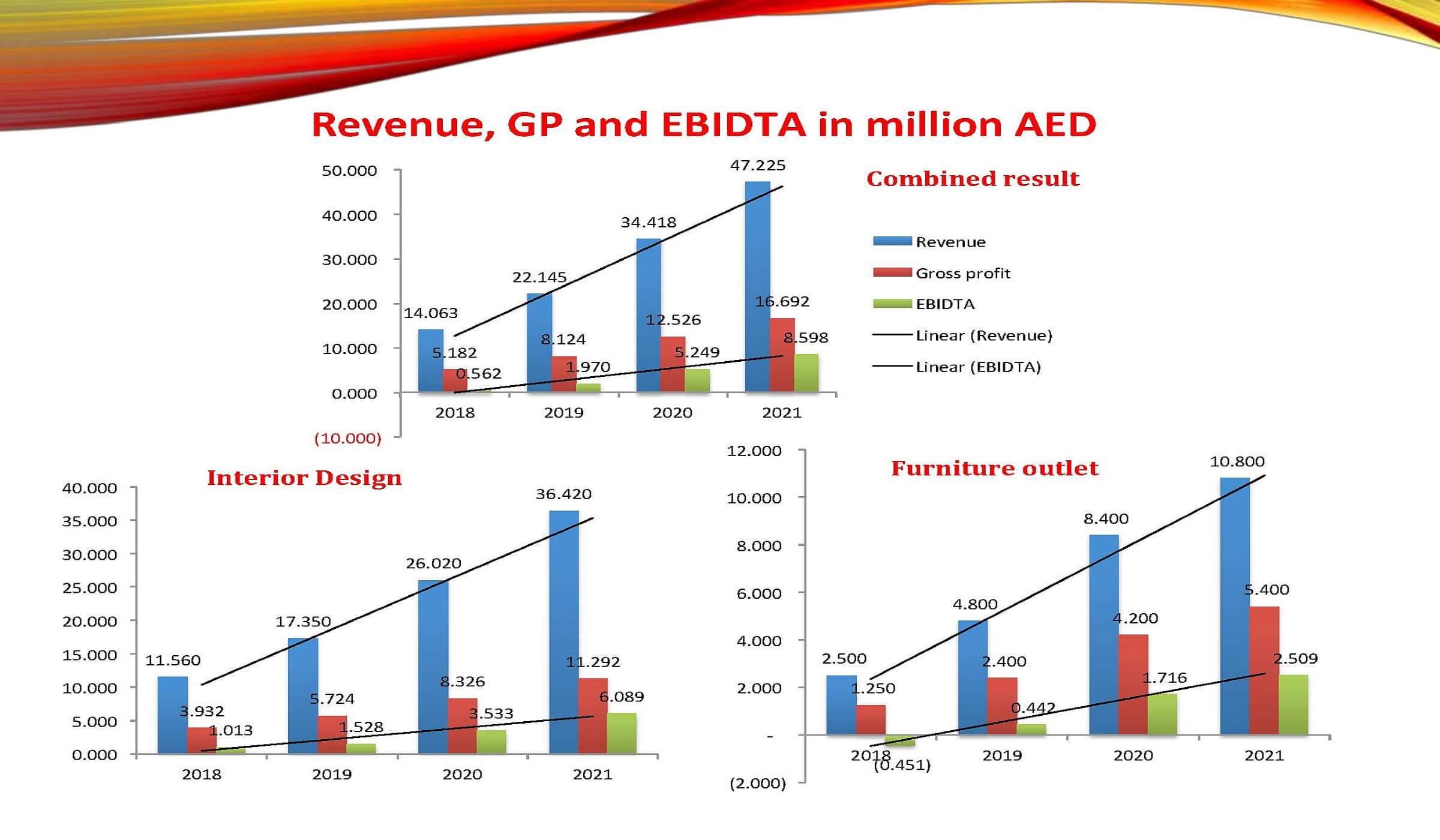ABOUT US
Financial Consultant in Dubai, UAE
BDJ Consult is a fast-growing business and management consulting firm in UAE with specialization in Accounting, Bookkeeping, Financial Reporting, Tax Consulting, Auditing (Internal and Statutory), Business Process Analysis, Internal Control, Business Plan, Feasibility, Business Valuation, Business Plan Consulting Services and Regulatory Compliances. We also provide value-added services in Human Resource Management, Payroll outsourcing, and ERP suggestion and implementation.
Request a Call Back
Seeking expert advice from our experienced professionals.

“At least eighty percent of millionaires are self-made. That is, they started with nothing but ambition and energy, the same way most of us start.” – Brian Tracy
Why Choose Us
We managed the opening up of various entities starting from feasibility/project reports in the field of TV, Radio, Media Production, Software, Car Rental, etc., in Free Zone as well as in mainland in UAE.
We helped them in and creating operational and financial reporting systems. We have implemented various ERPs and Accounting software after studying the requirement of clients.
We have done valuations and feasibility studies for some clients and helped them in mergers, acquisitions, and making investment decisions as required.
We help our clients in restructuring their capital structure with the proper mix of equity and debt in order to keep the cost of capital minimum possible.
We advise them on working capital management keeping sufficient capital available at all times. Also, help them in investing surplus capital to maximize return while keeping an eye on its security.
We help them in securing debt from banks, non-banking financial institutions, and even from individual financers.
TESTIMONIALS
Introduction to VAT, Excise, & Income Tax Consulting Services
VAT Consulting Services
Value-added tax (VAT) consulting services provided by an investment consultant company offer essential guidance to businesses navigating the complexities of VAT regulations. These services ensure compliance with local and international VAT laws, helping businesses avoid costly penalties. Consultants assist in various areas, including registration, filing, and reclaim processes. They offer strategic advice on optimizing VAT positions, managing cross-border transactions, and addressing industry-specific issues.
Excise Tax Consulting Services
In 2017, the United Arab Emirates (UAE) introduced excise tax as part of its efforts to promote public health and environmental sustainability. This tax consultation services target specific products deemed harmful to human health and the environment. Businesses involved in the manufacture, import, or sale of these excise goods are required to pay the tax to the government. The excise tax law applies to categories such as tobacco products, energy drinks, and carbonated beverages.
The tax rates are designed to discourage the consumption of these harmful products by increasing their prices, thus reducing their negative impact on society. Auditing services in Sharjah specialize in advising businesses on the specific taxes levied on certain goods. These consultants provide expertise in understanding and managing excise tax obligations, ensuring compliance with national and international regulations. Services include guidance on excise tax registration, calculation, and filing processes.
Income Tax Consulting Services
Income tax consulting services in the UAE cater primarily to businesses within the taxed sectors, such as oil, gas, and foreign banks, due to the absence of personal income tax for individuals. These services are crucial for navigating the complexities of tax compliance in an environment with selective taxation policies. Consultants offer expertise in tax planning, compliance, and advisory, helping businesses optimize their tax strategies and ensure adherence to UAE tax regulations. They assist with accurate tax filings, managing audits, and mitigating potential tax liabilities. Additionally, income tax consultants stay updated on legislative changes, providing proactive advice to adjust business practices accordingly.
Introduction to Taxation in UAE
- Overview of the UAE Tax System
The UAE tax system features no personal income tax, attracting expatriates and investors. However, specific sectors like oil, gas, and foreign banks are subject to corporate tax. Introduced in 2018, a 5% Value Added Tax (VAT) applies to most goods and services, aimed at diversifying government revenue. Additionally, an excise tax, initiated in 2017, targets harmful products such as tobacco, energy drinks, and carbonated beverages. Customs duties, generally at 5%, apply to imports. This tax framework supports economic diversification, foreign investment, and sustainable development while maintaining the UAE’s appeal as a tax-friendly jurisdiction. Financial consultants in Dubai play a vital role in helping businesses and individuals navigate this tax landscape. They provide expert advice on managing VAT, excise taxes, and corporate taxes, ensuring compliance with local regulations.
Difference Between VAT, Excise, and Income Tax
Value Added Tax (VAT), excise tax, and income tax are distinct forms of taxation, each with its specific application and purpose.
VAT is a consumption tax levied on the value added to goods and services at each stage of production and distribution. It is typically a percentage of the sales price and is collected incrementally from businesses throughout the supply chain, ultimately borne by the end consumer.
Excise Tax is imposed on specific goods that are considered harmful to health or the environment, such as tobacco, alcohol, and fuel. It is usually a fixed amount per unit and is designed to reduce the consumption of these products and generate revenue for public health initiatives.
Income Tax is a tax on an individual’s or a corporation’s earnings. It is calculated based on the net income or profit earned within a tax year. While the UAE does not impose personal income tax, it levies corporate taxes on certain sectors like oil, gas, and foreign banks.
Each tax serves different policy goals: VAT supports general revenue collection, excise tax targets public health and environmental concerns, and income tax addresses income and profit regulation.
VAT (Value Added Tax)
- Basics of VAT in UAE:-
Value Added Tax (VAT) is a consumption tax levied on goods and services at each stage of production and distribution. Implemented in the UAE on January 1, 2018, VAT is applied at a standard rate of 5%. Businesses charge VAT on their sales (output tax) and reclaim VAT on their purchases (input tax), with the net result paid to the government. The goal of VAT is to generate revenue for the government while ensuring a steady cash flow in the economy.
VAT advisory services in Dubai is something that should not be lacking because firms need help when it comes to VAT laws. These services extend advisory services relating to VAT registration, VAT compliance and filing procedures. Thus, utilizing VAT advisory services in Dubai, one can guarantee compliance with all legal regulations, adjust the size and position of the VAT, and avoid possible penalties. Thus, such professional support aids in the sustenance of efficient flow of financial business and other related factors that assists in the stability of the regional economy
How to Register for VAT
Step 1: Gather Required Documents
Before beginning the registration process, businesses must collect necessary documents. These typically include:
- Trade license
- Passport and Emirates ID of the owner/partners
- Details of business activities
- Financial records (like income statement)
- Turnover records for the last 12 months
Step 2: Fill out the Registration Form
Businesses must complete the VAT registration form available on the Federal Tax Authority (FTA) website. This form requires detailed information about the business, including the nature of its operations, turnover, expected taxable supplies, and bank account details.
Step 3: Submit and Await Approval
After filling out the registration form, it must be submitted to the FTA (Federal Tax Authority). The authority will review the application, and upon approval, the business will receive a Tax Registration Number (TRN). This process can take a few weeks, so it’s advisable to apply well before the mandatory registration threshold is met.
- VAT Compliance and Reporting
VAT Compliance:
Accurate Record-Keeping: Businesses must maintain detailed records of all transactions, including invoices, receipts, and bank statements. These records must be kept for at least five years and should clearly show the VAT collected on sales (output tax) and VAT paid on purchases (input tax).
Invoicing Requirements: VAT invoices must be issued for all taxable sales, containing specific details such as the business’s Tax Registration Number (TRN), the VAT amount, and the total amount payable. Failure to issue proper invoices can lead to penalties.
VAT Registration Threshold: Businesses must register for VAT if their taxable supplies and imports exceed AED 375,000 annually. Voluntary registration is available for businesses with taxable supplies and imports between AED 187,500 and AED 375,000.
VAT Reporting:
Filing VAT Returns: VAT-registered businesses are required to file VAT returns either monthly or quarterly, depending on their annual turnover. Returns must be filed electronically through the Federal Tax Authority (FTA) portal. VAT accounting services in UAE can ensure timely and accurate filing.
Deadlines: VAT returns are due by the 28th day of the month following the end of the tax period. For example, if your tax period ends on March 31, the VAT return must be filed by April 28. Late submissions incur penalties.
Payment of VAT: Any VAT owed must be paid by the same deadline as the VAT return. Businesses must ensure they have sufficient funds to cover their VAT liabilities.
Adjustments and Corrections: If errors are discovered in previously submitted VAT returns, businesses can make adjustments in subsequent returns or file a voluntary disclosure to correct the mistake. This must be done within 20 business days of identifying the error to avoid penalties.
- Monthly and Quarterly Filing Requirements
VAT-registered businesses must file VAT returns either monthly or quarterly, depending on their annual turnover. This involves detailing output tax collected and input tax paid. Returns are filed online through the FTA portal, and the net VAT payable must be settled by the due date to avoid penalties.
Monthly Filing: Typically required for larger businesses with higher turnovers. These businesses must submit their VAT returns and pay any VAT due every month.
Quarterly Filing: Smaller businesses usually file quarterly. This involves submitting a VAT return and paying any VAT due every three months.
Common Mistakes to Avoid:-
- Incorrect VAT calculations: Ensure accurate computation of output and input VAT.
- Late registration: Businesses must register when their taxable turnover exceeds AED 375,000.
- Incomplete record-keeping: Maintain detailed and accurate financial records to support VAT claims.
- Missing deadlines: Submit returns and payments on time to avoid fines.
- Misclassification of supplies: Accurately categorize goods and services to apply the correct VAT rate.
By adhering to these guidelines, businesses can navigate VAT requirements effectively, ensuring compliance and avoiding potential penalties.
Excise Tax
- Overview of Excise Tax in UAE:-
Excise tax in the UAE was introduced in October 2017 as part of the government’s efforts to promote healthier lifestyles and protect the environment. This tax targets specific goods that are considered harmful to human health or the environment, aiming to reduce their consumption. The tax also generates additional revenue for the government to support public services and infrastructure development.
- Goods Subject to Excise Tax:-
Excise tax in the UAE applies to the following categories of goods:
Tobacco Products: All types of tobacco and tobacco-related products are subject to a 100% excise tax.
Energy Drinks: Beverages marketed as energy drinks that contain stimulants such as caffeine, taurine, ginseng, and guarana are taxed at 100%.
Carbonated Drinks: Any beverage that is carbonated, excluding unflavored carbonated water, is subject to a 50% excise tax.
Electronic Smoking Devices and Tools: All electronic smoking devices, tools, and the liquids used in these devices are taxed at 100%. Management consulting services in UAE can guide businesses in adapting their strategies to comply with these regulations
- Excise Tax Filing and Payment:
How to File Excise Tax Returns?
Register for Excise Tax: Businesses dealing with excise goods must first register with the Federal Tax Authority (FTA). This includes manufacturers, importers, and stockpilers of excise goods.
File the Excise Tax Return: Registered businesses must file their excise tax returns electronically through the FTA portal. The return must detail the quantity and type of excise goods produced, imported, or released for consumption during the tax period.
Calculate the Tax Due: Calculate the excise tax based on the quantities and types of goods subject to excise tax. The tax amount is determined by the specific rate applicable to each category of goods.
- Payment Methods and Deadlines
Payment of Excise Tax: Once the excise tax return is filed, the payable amount must be settled with the FTA. Payments can be made through various methods, including bank transfers, e-Dirham, or other approved electronic payment systems.
Deadlines: Excise tax returns and payments are typically due monthly. The deadline for filing the return and making the payment is the 15th day of the month following the end of the tax period. For example, for goods produced, imported, or released for consumption in January, the return and payment would be due by February 15.
Penalties for Non-Compliance: Failure to file returns or make payments on time can result in penalties. It’s essential to adhere to the deadlines to avoid fines and ensure compliance with excise tax regulations.
By understanding these key aspects of excise tax in the UAE, businesses can ensure they comply with the regulations, accurately file their returns, and make timely payments. This helps avoid penalties and supports the government’s public health and environmental objectives
Income Tax
- Current Status of Income Tax in UAE
Currently the UAE has one of the most lenient taxation policies especially bearing in mind that it does not impose any personal income tax. There are no taxes on salary, wage, or other income earned by the residents. Nevertheless, specific industries are subjected to corporate taxes comprising the oil and gas entities and foreign banks. For now, as of 2023, the UAE is still planning to implement a federal corporate tax for companies starting June this year, the standard rate includes 9% for any profits over AED 375,000. Some of the free zones’ businesses policy advances can also remain tax exempted where they meet the set regulatory policies.
Thus, supply chain consulting firms are useful for helping businesses prepare for and manage these changes in taxation. They offer advisory services on how to deal with the issues relating to supply chain management especially concerning the new corporate tax rules.
- International Taxation for UAE Residents
Expatriates and residents of the UAE are usually users of international taxes. While residents in the UAE are not taxed on personal income, they may still have to pay taxes where they earn an income either in their home country or in other countries. The UAE has been a member of numerous countries DTT agreements to prevent instances of taxation of the same income more than once. These treaties can also offer relief thanks to the option of having different types of income earned in foreign countries be tax-free or be taxed at a low rate.
An experienced business development consultant can be of immense help to a company when it comes to these international tax issues. They give legal and business tips to the companies and people on how to best exploiting double taxation treaties. Implementing the assistance of business development consultant, the companies are capable of managing their tax-status and compliance with numerous forms of international tax requirements as well as improving the companies’ financial planning. Such a professional recommendation is crucial for any organisation aspiring for cross-border expansion while observing their tax optimisation.
- Tax Planning Strategies
Personal Tax Planning:-
Understanding Tax Residency Rules: Determine your tax residency status in your home country and other jurisdictions to avoid unexpected tax liabilities.
Utilizing Double Taxation Treaties: Leverage DTTs to minimize or eliminate double taxation on foreign income.
Efficient Wealth Management: Structure investments and savings to benefit from the UAE’s tax-free environment while considering international tax implications.
Estate Planning: Plan your estate to ensure that inheritance and gift taxes in other jurisdictions are minimized.
- Corporate Tax Planning
Optimal Business Structure: Choose the most tax-efficient business structure, such as establishing operations in a free zone to benefit from tax incentives.
Transfer Pricing Compliance: Ensure transactions between related entities are at arm’s length to comply with international transfer pricing rules.
Profit Repatriation: Develop strategies for repatriating profits to minimize tax burdens in both the UAE and home countries.
Utilizing Tax Credits and Deductions: Take advantage of available tax credits and deductions in jurisdictions where the business operates to reduce overall tax liability.
Staying Updated on Tax Laws: Regularly review and adapt to changes in international tax laws and regulations to maintain compliance and optimize tax positions.
Effective tax planning for both individuals and businesses in the UAE involves understanding and leveraging the unique aspects of the UAE tax environment while managing international tax obligations. By implementing strategic tax planning, individuals can maximize their wealth, and businesses can enhance their profitability and ensure compliance with global tax standards.
Tax Compliance
- Importance of Staying Compliant
Staying compliant with tax regulations is crucial for businesses and individuals to avoid legal issues, financial penalties, and reputational damage. Compliance ensures smooth operations, fosters trust with authorities, and enables eligibility for government incentives. It also helps in maintaining accurate financial records, which are vital for strategic planning and decision-making.
- Common Compliance Mistakes and How to Avoid Them:
Late Filing and Payments:
Mistake: Missing deadlines for filing tax returns or making payments.
Avoidance: Set up reminders and maintain a tax calendar. Automate payments where possible to ensure timely compliance.
Inaccurate Reporting:
Mistake: Incorrectly reporting income, expenses, or other financial details.
Avoidance: Keep thorough and accurate records. Regularly reconcile accounts and conduct internal audits to verify data.
Poor Record-Keeping:
Mistake: Failing to maintain detailed and organized records of transactions.
Avoidance: Implement a robust record-keeping system and ensure that all financial documents are stored and easily accessible.
Misclassification of Transactions:
Mistake: Incorrectly categorizing income or expenses, leading to errors in tax returns.
Avoidance: Understand the tax classification rules and seek clarification when in doubt. Regular training and updates for staff on tax matters can also help.
Ignoring Tax Law Changes:
Mistake: Not staying updated with changes in tax regulations and laws.
- Avoidance: Subscribe to tax updates from reliable sources and regularly consult with tax professionals to stay informed about new requirements.
Role of Tax Consultants in Ensuring Compliance:-
Tax consultants play a vital role in ensuring compliance by providing expert guidance and support. They help businesses and individuals understand complex tax laws and regulations, minimizing the risk of errors and penalties. Consultants offer services such as:
Advisory and Planning: Provide strategic advice on tax planning to optimize tax positions and ensure compliance with current laws.
Filing and Documentation: Assist with accurate preparation and timely filing of tax returns and other required documents.
Audit Support: Represent clients during tax audits and help in resolving disputes with tax authorities.Audit Support: Represent clients during tax audits and help in resolving disputes with tax authorities.
Training and Updates: Keep clients informed about changes in tax regulations and provide training to ensure ongoing compliance.
Customized Solutions: Develop tailored compliance strategies that fit the specific needs and circumstances of the client’s business operations.
By leveraging the expertise of tax consultants, businesses and individuals can navigate the complexities of tax compliance more effectively, reduce risks, and focus on their core activities with confidence.
Tax Audits and Disputes
Preparing for a Tax Audit:
Maintain Accurate Records: Ensure all financial records, including invoices, receipts, bank statements, and tax returns, are accurate, organized, and up-to-date. Keep these records for at least five years.
Understand Tax Obligations: Familiarize yourself with UAE tax laws and regulations applicable to your business to ensure compliance. This includes understanding VAT, excise tax, and corporate tax requirements.
Conduct Internal Audits: Regularly perform internal audits to identify and rectify any discrepancies or potential issues in your financial records and tax filings before an official audit.
Prepare Documentation: Have all necessary documents ready, including contracts, purchase orders, and evidence of tax payments. Ensure that all transactions are properly documented and justified.
Consult a Tax Advisor: Engage a tax consultant to review your records and advise on any potential issues that might arise during an audit. They can also provide guidance on best practices for maintaining compliance.
Common Issues in Tax Audits:
Inaccurate or Incomplete Records: Failure to maintain accurate and complete records can lead to discrepancies and penalties. Ensure all financial transactions are well-documented.Ensure all financial transactions are well-documented. Accounting and bookkeeping services in the UAE can help manage and maintain accurate records.
Incorrect VAT Returns: Errors in calculating VAT, such as misclassifying goods or services or failing to claim input tax credits correctly, are common issues.
Non-compliance with Filing Deadlines: Missing deadlines for tax returns and payments can result in fines and interest charges.
Improper Classification of Transactions: Misclassifying expenses and revenues can lead to incorrect tax reporting and potential disputes.
Unreported Income: Failing to report all sources of income can result in significant penalties and interest.
- Resolving Tax Disputes:
Review Audit Findings: Carefully review the audit report to understand the issues raised by the tax authorities. Identify any discrepancies or areas of disagreement.
Gather Evidence: Collect all relevant documents and records that support your position. This includes contracts, invoices, receipts, and correspondence with customers or suppliers.
Consult a Tax Professional: Engage a tax consultant or legal advisor to help interpret the audit findings, gather evidence, and formulate a response to the tax authorities.
Communicate with Tax Authorities: Engage in open communication with the tax authorities to address the issues raised. Provide clarifications and additional documentation as needed to support your case.
File an Objection: If you disagree with the audit findings, you can file an objection with the Federal Tax Authority (FTA). The objection must be filed within 20 business days from the date of receiving the assessment.
Alternative Dispute Resolution (ADR): Consider ADR mechanisms such as mediation or arbitration to resolve disputes without litigation.
Appeal to Tax Dispute Resolution Committee: If the objection is not resolved satisfactorily, you can appeal to the Tax Dispute Resolution Committee within 20 business days of the FTA’s decision on the objection.
By following these steps and leveraging professional assistance, businesses can effectively prepare for tax audits, address common issues, and resolve disputes efficiently, ensuring compliance with UAE tax regulations.
Conclusion
Recap of Key Points
- Introduced in 2018, the Value Added Tax (VAT) is levied at 5% on most goods and services, requiring businesses to register, file returns, and pay taxes periodically.
- Initiated in 2017, excise tax targets harmful products like tobacco, energy drinks, and sweetened beverages, with varying tax rates to reduce consumption and support public health.
- There is no personal income tax for residents, but corporate tax applies to specific sectors like oil and gas and foreign banks. A federal corporate tax is set to be introduced in June 2023.
- Businesses must maintain accurate records, file VAT returns either monthly or quarterly, and pay taxes by specified deadlines to avoid penalties.
- Businesses dealing with excise goods must register, file returns monthly, and pay the excise tax by the 15th of the following month.
- Effective tax planning includes understanding tax residency, utilizing double taxation treaties, managing wealth efficiently, and optimizing business structures for corporate tax benefits.
- Compliance with tax regulations avoids legal issues, financial penalties, and maintains business reputation and operational efficiency.
- Mistakes such as late filings, inaccurate reporting, and poor record-keeping can lead to penalties. Regular internal audits and consulting tax professionals help mitigate these risks.
- Tax consultants provide strategic advice, assist with filings, support during audits, and ensure ongoing compliance with tax laws, helping businesses navigate complex tax environments.
- Preparing for tax audits involves maintaining accurate records and understanding tax obligations. Resolving disputes requires reviewing audit findings, gathering evidence, and potentially filing objections or appeals.
Call-to-Action: Contact Us for Expert Tax Consulting Services
Navigating the complexities of the UAE tax system can be challenging, but BDJ Consult is here to help. Our experienced professionals provide tailored solutions for VAT, excise tax, and corporate tax planning. We offer personalized service, proactive support, and comprehensive compliance assurance to keep your business on track. With our expertise, you can avoid penalties, streamline processes, and stay informed about the latest tax regulations. Contact BDJ Consult today to schedule a consultation and let us help you optimize your tax position and focus on growing your business.
Request a Callback
Would you like to speak to one of our consultant over the phone? Just submit your details and we’ll be in touch shortly.
our clients











